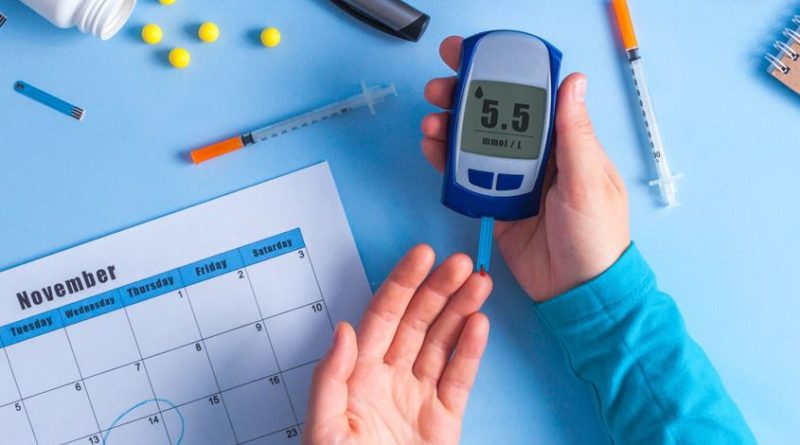Making Life Easier and Smoother for Diabetic Patients
Despite the absence of a cure for diabetes, effectively managing the condition through lifestyle changes, medication adherence as prescribed by a physician, and self-care education can significantly improve a patient’s quality of life, making it easier and smoother. Several daily strategies and measures can enhance the quality of life for diabetic patients, including adopting a healthy diet, engaging in regular physical activity, continuous monitoring of blood sugar levels, collaborating with a medical team, and acquiring self-care education. Additionally, support from family, friends, and healthcare professionals, along with staying informed about treatment options and expectations, can make living with diabetes more manageable.
Education and Empowerment
Proper education and empowerment help diabetic patients improve their ability to manage the disease and make informed decisions. Patients should be well-versed in basic knowledge about diabetes, how to measure blood sugar levels, and regulate medication dosages. A deep understanding of diabetes helps patients spot early warning signs, maintain their treatment plans, and significantly decrease the chance of serious health issues, thereby preventing the triggers that could lead to further diabetic complications. Educating diabetic patients improves overall health, as knowledge about the disease empowers them to lead a healthy lifestyle and equips them with the skills to handle the psychological and social challenges of diabetes. Consequently, feeling confident and in control of their condition provides patients with a greater sense of happiness and satisfaction.
Adopting a Healthy Diet
A healthy diet is crucial for diabetic patients to manage their blood sugar levels. It helps regulate blood sugar levels, prevent sudden spikes or drops, and reduce the risk of diabetes complications, potentially decreasing the need for medications. Guidance from a specialized dietitian is essential to determine an appropriate diet plan that meets the patient’s nutritional needs. Maintaining a healthy and balanced diet that includes complex carbohydrates, proteins, fibers, and healthy fats is vital.
Regular Physical Activity
Regular physical activity improves insulin sensitivity, controls blood sugar levels, and enhances overall fitness. Patients are advised to engage in moderate-intensity physical activity for at least 150 minutes per week, spread over at least three days. Regular exercise controls blood sugar levels by stimulating muscles to use blood glucose for energy and increases the body’s insulin sensitivity, thereby reducing the risk of diabetes complications.
Continuous Blood Sugar Monitoring
Ongoing monitoring of blood sugar levels helps track values, adjust medication dosages, nutrition, and physical activity based on readings. Diabetic patients should regularly monitor their blood sugar levels using a glucose meter, playing a crucial role in managing diabetes effectively and adhering better to the treatment plan, thus reducing the risk of complications.
Weight Management
Maintaining a healthy weight is essential for managing diabetes. Even a small amount of weight loss can have significant health benefits, including improved blood sugar, blood pressure, and cholesterol levels. Weight management reduces insulin resistance, enhancing the body’s ability to use sugar and decreasing the secretion of glucagon, which causes high blood sugar levels.
Adherence to Medication
Patients must follow the doctor’s instructions and dosage schedule precisely. Good adherence to treatment can achieve better blood sugar level balance. Diabetic patients should carefully follow the doctor’s instructions regarding medication, including the type, dosage, timing, and duration of medication intake as prescribed.
Communication with the Medical Team
Maintaining good communication with the treating medical team, including the treating doctor, experienced nurse, and dietitian, is crucial. Regular communication helps assess and address challenges related to diabetes management. Regular interaction with the medical team provides personalized care, offering precise guidance based on the patient’s condition and individual needs, along with emotional support and motivation to handle diabetes challenges.
Connecting with Others
Joining diabetes support groups and talking with family and friends can improve a diabetic patient’s life. It’s important to be surrounded by a strong support network to help deal with the psychological and emotional challenges. Connecting with others provides strong emotional support, offering encouragement and understanding in facing diabetes challenges and daily management.
Stress Management
Effective stress management is crucial, as psychological stress can affect blood sugar levels. Techniques like meditation, relaxation, and stress-reducing activities help achieve emotional balance. Continuous stress can impact other factors like sleep patterns, physical activity, and nutrition; managing and reducing stress contributes to better diabetes management and overall health. By embracing a comprehensive approach that includes education, dietary adjustments, regular exercise, diligent monitoring, and support, individuals with diabetes can lead fulfilling lives. Each element of this strategy plays a crucial role in smoothing the path of diabetes management, demonstrating that with the right knowledge and support, living well with diabetes is entirely achievable.
Source: https://hospitalsmagazine.com/making-life-easier-and-smoother-for-diabetic-patients/

